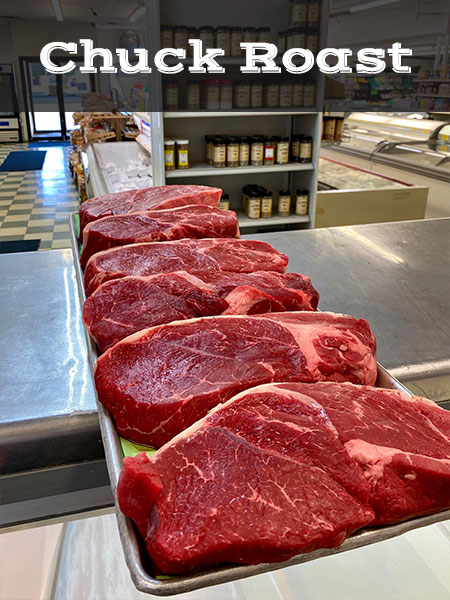Why Purchasing at a Farmers Market Supports Regional Farmers and Your Neighborhood
Shopping at a farmers market acts as a concrete ways of supporting regional farmers while concurrently boosting the economic textile of your neighborhood. By taking part in these marketplaces, customers add to a sustainable farming community that prioritizes fresh, high-quality fruit and vegetables and cultivates direct connections in between cultivators and buyers. This practice not just grows a feeling of community but likewise motivates the conservation of neighborhood food traditions. Recognizing the broader implications of these interactions can disclose exactly how seemingly simple options at a farmers market can resonate throughout the entire community. Take into consideration the effect this carries neighborhood economic climates and food systems.
Financial Advantages of Farmers Markets

Farmers markets significantly contribute to regional economies by promoting straight sales between customers and manufacturers. Such reinvestment not only enhances productivity yet likewise suffers local farming jobs.
In addition, farmers markets boost economic task within the surrounding area. By bring in consumers who might also buy from close-by organizations, these markets assist to create a dynamic local ecosystem. The influx of customers motivates foot traffic, which profits shops, restaurants, and coffee shops, inevitably causing a multiplier result that strengthens the total economic situation.
In addition, farmers markets often work as a platform for small-scale business owners and craftsmens, enabling them to showcase and market their items. This diversification of neighborhood offerings can improve area identification and pride. Many markets approve alternate types of settlement, such as food stamps or coupons, making sure that fresh fruit and vegetables is easily accessible to a more comprehensive demographic, thus advertising economic inclusivity. Overall, the economic benefits of farmers markets expand far past straight sales, promoting a durable and resistant regional economic climate.
Quality and Quality of Create
The unparalleled quality and top quality of produce found at farmers markets are essential factors that draw in customers looking for savory and healthy alternatives. Unlike supermarket offerings, which commonly undertake long transportation times and storage durations, the fruits, veggies, and various other products available at farmers markets are generally gathered simply days or also hours prior to being sold. This immediacy guarantees that the nutrients, flavor, and structure are maintained, giving a superior culinary experience.
In addition, farmers markets frequently feature seasonal produce, enabling consumers to take pleasure in fruits and veggies at the optimal of their perfection. This not just boosts the taste but also encourages the usage of a diverse variety of foods, promoting a more balanced diet. Local farmers take pride in their growing methods, typically using lasting techniques that improve the high quality of their produce. Numerous also provide organic alternatives, permitting health-conscious customers to make educated options.
The straight link between the farmer and the customer at these markets promotes transparency relating to agricultural techniques, additionally guaranteeing shoppers of the top quality of their purchases. As an outcome, customers can confidently sustain their wellness while taking pleasure in the rich tastes that come from neighborhood, newly harvested fruit and vegetables.
Building Neighborhood Relationships
Community partnerships grow at farmers markets, where local manufacturers and consumers participate in meaningful communications. farmers market edwardsville il. These markets act as lively community centers, fostering links that extend past simple purchases. Consumers have the one-of-a-kind chance to fulfill the very farmers that expand their food, helping with a much deeper gratitude for farming practices and the difficulties encountered by local producers
This straight engagement develops trust fund and loyalty, making it possible for consumers to support the extremely people who contribute to their neighborhood's economy and vitality. These interactions commonly lead to the sharing of expertise about seasonal produce, cooking suggestions, and sustainable methods, enhancing the area's cumulative understanding of food systems.
In addition, farmers markets create a feeling of belonging, as people from diverse backgrounds come with each other to commemorate regional culture and shared worths. Eventually, buying at farmers markets is not just about acquiring food; it is regarding nurturing area bonds that add his explanation to a resilient and thriving neighborhood ecological community.
Encouraging Sustainable Practices
At farmers markets, lasting methods are not just urged but proactively promoted, creating a system for ecologically conscious intake. These markets commonly feature neighborhood farmers who make use of organic farming methods, which substantially go reduce the reliance on synthetic chemicals and fertilizers. By focusing on organic growing, they contribute to much healthier communities and advertise soil health, ensuring that the land can sustain farming practices for future generations.
In addition, numerous farmers at these markets welcome sustainable methods such as plant rotation and permaculture methods, which enhance biodiversity and lower soil erosion. The focus on seasonal produce likewise decreases the carbon footprint connected with transporting food over fars away, cultivating a more lasting food system.

Sustaining Local Food Solutions

Sustaining regional food systems likewise minimizes the carbon footprint connected with delivering food over long ranges. When customers buy directly from local farmers, they minimize the need for extensive supply chains, therefore preserving power and resources. Furthermore, farmers markets typically motivate sustainable farming techniques, as neighborhood manufacturers are much more likely to focus on eco-friendly approaches to useful content appeal to their area.
Additionally, by purchasing local food systems, customers add to the strength of their communities. A durable regional food network can stand up to exterior pressures and economic fluctuations, making certain a steady food supply. Ultimately, shopping at farmers markets not only sustains neighborhood farmers yet also boosts the general health and sustainability of the area's food environment.
Final Thought
Buying at farmers markets plays an essential function in supporting local farmers and boosting neighborhood resilience. By focusing on neighborhood produce, these markets add to economic security, advertise sustainable farming techniques, and foster social connections among neighborhood participants. The straight relationship between customers and regional manufacturers not only makes sure accessibility to fresh, top notch food yet also enhances neighborhood food systems. Ultimately, interaction with farmers markets grows a dynamic, interconnected neighborhood that values financial and environmental sustainability.
Purchasing at a farmers market offers as a tangible means of supporting local farmers while concurrently strengthening the financial material of your neighborhood. By prioritizing regional sourcing, farmers markets assist preserve regional agricultural diversity and promote the consumption of seasonal produce, which in turn strengthens local economic climates.
Eventually, shopping at farmers markets not just sustains neighborhood farmers yet additionally improves the general health and wellness and sustainability of the neighborhood's food environment. (farmers market edwardsville il)
Buying at farmers markets plays a crucial function in boosting and sustaining regional farmers neighborhood strength. The straight connection in between consumers and neighborhood manufacturers not just ensures accessibility to fresh, high-grade food yet likewise enhances local food systems.